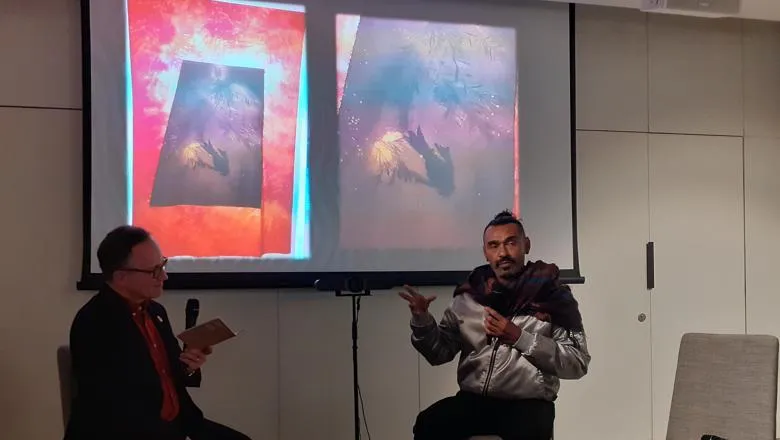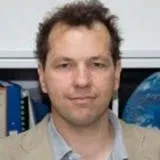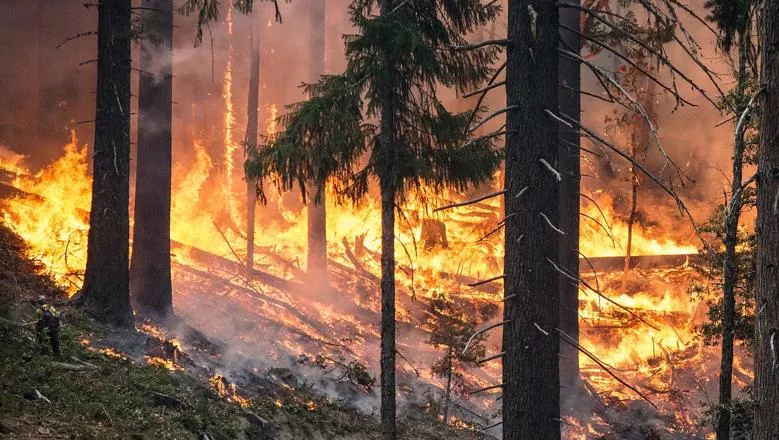Wildfires are one of the most pressing environmental issues of our time, affecting nearly every continent on Earth, from Australia to the Arctic. Yet, wildfires are a complex puzzle – they are a source of destruction and also an ecosystem service. They are also an important part of Earth’s history and human society.
The exhibition, ‘Stolen climate: Global perspectives of fire on Earth’ at Science Gallery London aimed to bring together different forms of knowledge on wildfires, from their interaction with the Earth’s atmosphere and climate, to the relationship between colonialism and fire management policies.
It featured a collection of artwork and film, presenting First Nations Peoples’ perspective on fire in the context of the current climate emergency. It also included a series of satellite images, ‘Australian Fires from Space’, provided by Professor Martin Wooster from the Department of Geography and collaborators.
The images contrasted the sustainable and traditional use of fire by First Nations Peoples over millennia, with the extreme nature of wildfires today, including their impact on air quality, as seen through the lens of technology and science.
At the recent exhibition launch, artist and Torres Strait Islander, Clinton Naina spoke passionately about First Nations Peoples being robbed of land, culture and climate, citing how ancient ways such as cultural burning became demonised and persecuted by colonisers.
Naina acknowledged that landscape management practices in Australia are slowly incorporating traditional systems such as long-practiced controlled burns. However, he argued that, after a painful history of genocide and decades of oppression, First Nations Peoples need not only a seat at the table, but an equal seat when it comes to policymaking.
His artwork, ‘Stolen Climate’ was premiered at the launch. Taking the form of a flag, the artwork weaves together past and present, and interprets the current situation of fire and climate in Australia, including the hidden and overlooked voices of his people.
It was commissioned by the Leverhulme Centre for Wildfires, Environment and Society and the Arts Cabinet, in collaboration with the Centre of Visual Art (CoVA) at the University of Melbourne and with funding from the Menzies Australia Institute.
The conversation between Naina and Dr Chris Fremantle (Gray’s School of Art), Professor Kate Schreckenberg (King’s) and Dr Cathy Smith (RHUL) was followed by a series of talks and the screening of ‘The Fire Keepers’ – a film on the collaborative approach to land management which respects Indigenous knowledge of country and cultural fire practices.
The talk, ‘Wildfires at the Art-Science Interface’ explored how scientists and artists can work together to create new understandings. Abigail Croker (Imperial) and Kapil Yadav (King’s) shared their involvement with artists in exploring the different ways to understand and think about wildfires.
The talk, ‘Understanding Fire on Earth’ saw several wildfire experts discuss different scientific approaches to understanding fire and demonstrate their findings. Professor Wooster was among the experts and shared how global landscape fires and their air quality impacts are assessed from space and from the ground.
The exhibition and launch are part of an ongoing series of initiatives linking wildfires, art and science, led by Leverhulme Centre for Wildfires, Environment and Society and in partnership with the Arts Cabinet.
‘Stolen Climate’ is part of the ‘Stolen Unknown’ series produced by Clinton Naina in 2021. You can read an interview with Naina about the artwork on the Arts Cabinet website.



